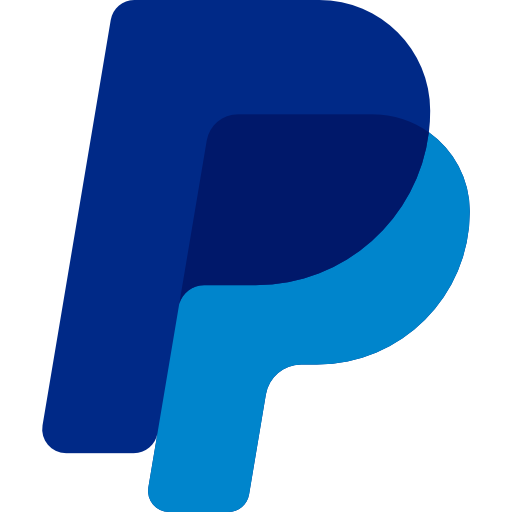
Mastering Your Unique Selling Proposition for Digital Marketing Success
Businesses face intense competition at every turn. Whether you’re running an e-commerce site, a marketing agency, or offering a service, the challenge remains the same: how do you stand out in a crowded marketplace? The answer lies in developing a powerful Unique Selling Proposition (USP).
What is a Unique Selling Proposition?

A unique selling proposition is the cornerstone of your marketing strategy. It’s the factor that sets your business apart from your competitors. Simply put, a USP defines why customers should choose you over everyone else. It highlights your most compelling strengths, making your business memorable and appealing to your target audience.
But creating your own unique selling proposition isn’t just about having a catchy slogan. It’s about identifying and emphasizing what makes your product, service, or brand truly one-of-a-kind.
The Importance of a Unique Selling Proposition
In the world of digital marketing, where consumers are bombarded with hundreds of options for every product or service, a unique selling point helps you grab attention. It simplifies your marketing message and makes it clear why people should pay attention to your offer. A strong USP builds trust and demonstrates your value—crucial elements for securing customers in the digital age.
Without a solid USP, you risk blending in with the competition and losing potential customers to businesses that are clearer about their value proposition. Developing a unique selling proposition can make all the difference between being overlooked and becoming a market leader.
How to Create Your Own Unique Selling Proposition

Creating a unique selling proposition is a step-by-step process that involves understanding your business, your audience, and your competition. Here’s how you can get started:
Understand Your Target Audience
The first step in crafting a good unique selling point is knowing who you’re speaking to. What are their pain points? What do they value most? By understanding your audience’s needs, you can create a USP that directly speaks to their desires.Analyze Your Competition
What are your competitors offering, and how can you do it better? Consider their selling points—what sets them apart from the rest. A good selling point is one that highlights what makes your business different and superior in a way that resonates with your audience.Define Your Core Strengths
Your company selling points should be rooted in what you do best. Do you offer superior customer service? Are you more affordable, faster, or more innovative than your competitors? Focus on the features of your product or service that you can deliver better than anyone else.Simplify Your Message
Once you’ve identified your strengths, distill them into a concise and compelling message. A unique selling proposition should be clear and to the point. It should immediately tell your audience why they should choose you.Test and Refine
Your business’s unique selling proposition should evolve with your company. Continuously test your USP with your audience and adjust it as needed to stay relevant and impactful.
Examples of Unique Selling Propositions in Action
To better understand how powerful a unique selling proposition can be, let’s look at some famous examples:
Apple is the best examples of a brand’s unique selling proposition, Apple combines cutting-edge technology with sleek, minimalist design. Their USP revolves around creating premium, user-friendly products that seamlessly integrate with one another.
Nike’s unique selling point is all about empowerment and motivation. Their iconic “Just Do It” slogan connects with athletes on a personal level, inspiring them to push boundaries and achieve their best.
Dyson is known for its innovative technology, Dyson’s USP focuses on delivering powerful, efficient products, like vacuum cleaners, that outperform traditional models.
Amazon’s unique selling proposition is convenience. With fast shipping, a vast selection of products, and a seamless online shopping experience, Amazon delivers unparalleled convenience for shoppers.
IKEA’s USP is a mix of affordability and style. The Swedish furniture brand has positioned itself as the go-to for customers who want modern, functional furniture at a price they can afford.
Finding Your Unique Selling Point in Digital Marketing
To find your unique selling point, ask yourself some key questions:
- What makes my product or service different?
- Why should customers trust me over my competitors?
- What problem am I solving for my customers?
- How can I communicate my value in a simple, compelling way?
The answers to these questions can help you pinpoint what makes your business unique and how to position that uniqueness in your digital marketing campaigns.
How a Strong USP Benefits Your Business
Increased Brand Recognition
A brand unique selling proposition that resonates with your audience can make your brand unforgettable. Whether through social media, ads, or content, a strong USP will help customers easily identify and remember your business.Better Marketing Focus
When you have a clear unique selling proposition, your digital marketing efforts become more focused. Whether you’re creating ads, building landing pages, or designing your website, your USP acts as a guiding principle for all of your messaging.Improved Customer Loyalty
When customers resonate with your company’s unique selling proposition, they are more likely to return. A strong USP fosters trust and aligns your business with the needs and desires of your audience.Competitive Advantage
In a crowded market, a compelling USP can be your greatest competitive edge. It helps you define your unique selling proposition in a way that positions your business as the go-to solution for your target market.
Real-World Examples of USPs for Different Industries
For a marketing agency unique selling point, the focus might be on delivering tailored strategies that yield measurable results. A message like “We don’t just market your business—we grow it” can attract clients looking for a personalized approach.
A real estate unique selling proposition example could be “Find your dream home with ease.” This promises potential buyers a streamlined, hassle-free experience that sets a real estate agent apart from competitors.
: For fashion brands, a unique selling point for clothing might emphasize sustainable, eco-friendly practices, or creating trendy yet affordable pieces. “Wear the future” could be an example of a USP for a clothing brand that stands for innovation and sustainability.
Companies like HelloFresh have built their unique selling point around convenience, with meal kits that make cooking at home both easy and enjoyable. Their message, “Cooking made simple,” perfectly conveys this proposition.
Bottom Line
In digital marketing, your unique selling proposition is the foundation of your strategy. Whether you’re launching a new product, building your brand, or trying to differentiate yourself in a crowded market, a strong USP can propel your business forward. By understanding your audience, defining your key strengths, and communicating your message clearly, you can create a unique selling proposition that not only attracts attention but converts leads into loyal customers.
So, what’s your unique selling point? Create your own unique selling proposition today and watch your digital marketing efforts thrive!




